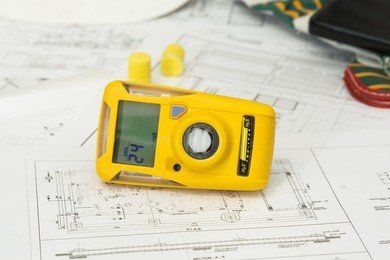Gas sensors have become indispensable across a spectrum of industries, revolutionizing how we monitor and manage gases in diverse environments. From safeguarding workplaces to enhancing agricultural practices, these sensors play a pivotal role in ensuring safety, efficiency, and compliance with environmental standards. In this article, we are going to explore the application industries of gas sensors from the following aspects:
- Industrial Sector;
- Environmental Monitoring;
- Home and Building Safety;
- Healthcare;
- Automotive Industry;
- Agriculture;
- Energy Sector;
- Food and Beverage Industry;
- Mining;
- Defense and Security.

1. Industrial Sector
Chemical Plants: Gas sensors are crucial for monitoring volatile compounds, ensuring the safety of workers, and preventing potential disasters.
Manufacturing Facilities: Detecting gases produced during manufacturing processes helps maintain a safe working environment.
2. Environmental Monitoring
Air Quality Management: Gas sensors aid in measuring pollutants like nitrogen dioxide, ozone, and particulate matter, contributing to research on climate change.
Weather Stations: Monitoring various gases helps meteorologists understand atmospheric conditions better.
3. Home and Building Safety
Residential Spaces: Gas sensors in homes detect leaks of natural gas, propane, or carbon monoxide, ensuring the safety of occupants.
Commercial Buildings: Monitoring air quality is crucial in office spaces to create a healthy and productive working environment.
4. Healthcare
Medical Equipment: Gas sensors are integrated into devices like anesthesia machines and ventilators to measure and control gas levels during medical procedures.
Diagnostic Tools: In laboratories, gas sensors contribute to accurate analysis and diagnosis.
5. Automotive Industry
Emission Control: Gas sensors in vehicles measure exhaust gases, aiding in the control of emissions to meet environmental regulations.
Safety Systems: Integrated into airbag systems, gas sensors contribute to enhanced safety by detecting impacts and deploying airbags accordingly.
6. Agriculture
Greenhouses: Gas sensors help monitor levels of ethylene, carbon dioxide, and other gases, optimizing conditions for plant growth.
Livestock Farms: Monitoring ammonia levels ensures a healthy environment for animals and prevents respiratory issues.
7. Energy Sector
Oil and Gas Exploration: Gas sensors are used to detect leaks and monitor potentially hazardous gases in drilling and extraction operations.
Power Plants: Monitoring gases like sulfur dioxide aids in controlling emissions from power generation facilities.

8. Food and Beverage Industry
Food Storage: Gas sensors play a role in monitoring controlled atmospheres to extend the shelf life of perishable goods.
Brewing and Winemaking: Controlling gas levels ensures the quality and flavor of beverages during production.
9. Mining
Coal Mines: Gas sensors are vital for detecting methane and other gases, preventing explosions, and ensuring the safety of miners.
Metal Extraction: Monitoring gases in ore processing contributes to worker safety and environmental compliance.
10. Defense and Security
Chemical Warfare Detection: Gas sensors are used for the rapid detection of chemical threats in military and security applications.
Border Control: Monitoring for illicit substances or dangerous gases contributes to border security efforts.

In conclusion, the pervasive use of gas sensors across industries underscores their significance in our modern world. Whether ensuring worker safety in industrial settings, optimizing agricultural processes, or fortifying security measures, gas sensors have proven to be versatile guardians of our well-being. As technology advances, we can anticipate even more innovative applications and the continued evolution of gas sensor technology, further solidifying their crucial role in shaping a safer, more efficient future across a multitude of sectors. If you are interested in gas sensors or any other related products, you can contact us by filling out the form at your right!

